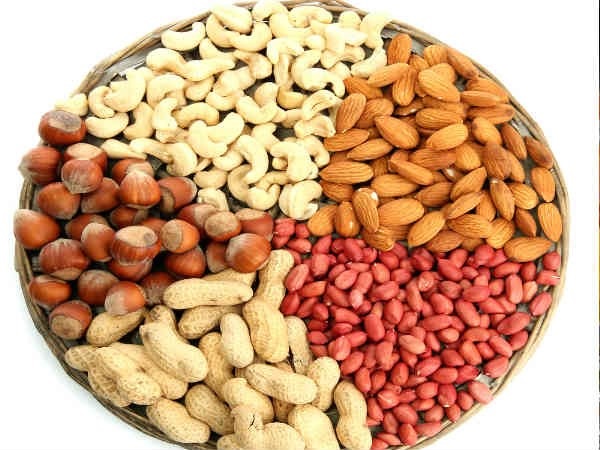The Protein Guide You Didn’t Know You Needed
Category: Healthy Nutrition

Last week, we uncovered how important protein is, especially as we age, and how it does so much more than support muscles.
But here’s the thing:
Even when we know we need more protein, figuring out how to get enough—and which kind—can feel a little overwhelming.
Which type should you choose? Meat? Plant-based? A shake? And what about collagen?
Let’s break it down so it’s easy and doable.
The Basics: Where Protein Comes From
Protein is found in both animal-based and plant-based foods:
Animal-Based Proteins:![]() Chicken, turkey, beef, fish, eggs, dairy
Chicken, turkey, beef, fish, eggs, dairy![]() Complete proteins (contain all 9 essential amino acids)
Complete proteins (contain all 9 essential amino acids)![]() Typically more protein per serving
Typically more protein per serving
Plant-Based Proteins:![]() Beans, lentils, tofu, tempeh, quinoa, nuts, seeds
Beans, lentils, tofu, tempeh, quinoa, nuts, seeds![]() Often packed with fiber and nutrients
Often packed with fiber and nutrients![]() Some are incomplete proteins (you may need to mix sources)
Some are incomplete proteins (you may need to mix sources)![]() Tip: You don’t have to choose one over the other. Many people thrive on a mix of both!
Tip: You don’t have to choose one over the other. Many people thrive on a mix of both!


When Food Isn’t Enough: Why Protein Supplements Help
Some days are hectic. Meals get skipped. Or you’re working toward a goal like building strength or boosting recovery.
That’s where protein powders come in handy—quick, convenient, and customizable. But with so many options, how do you choose?
Whey vs Plant vs Soy vs Collagen: What’s Best?
Here’s a simple guide to help you decide:![]() Whey Protein:
Whey Protein:
- Derived from milk (not suitable if dairy-sensitive)
- Fast-digesting, great post-workout
- High in leucine (great for muscle repair)
![]() Plant-Based Protein (like pea, hemp, rice):
Plant-Based Protein (like pea, hemp, rice):
- Good for vegans or those avoiding dairy
- Often easier on digestion
- Many blends now offer complete amino acid profiles
![]() Soy Protein:
Soy Protein:
- Complete plant protein
- Good option if you tolerate soy well
- Contains beneficial phytonutrients
![]() Collagen Protein:
Collagen Protein:
- Great for joint, skin, and gut support
- Not a complete protein—best paired with other sources
- Usually sourced from beef or fish


What to Look for in a Quality Protein Powder
Shopping for protein powder doesn’t have to be overwhelming—just keep a few key things in mind to make a safe, smart choice:![]() Clean, simple ingredients
Clean, simple ingredients
Avoid artificial sweeteners, dyes, or long lists of unrecognizable ingredients. Your protein should nourish, not confuse.![]() Protein content
Protein content
Aim for 15–25g of protein per serving to help meet your daily needs and support muscle health.![]() Third-party tested for safety
Third-party tested for safety
With growing concerns about heavy metals (like lead) showing up in some protein powders, it’s important to choose brands that are transparently tested for purity. Look for third-party certifications or companies that publish their testing results.![]() Rich in BCAAs—especially leucine
Rich in BCAAs—especially leucine
Branched-chain amino acids (BCAAs) are essential for muscle repair and recovery.
Leucine plays a key role in triggering muscle protein synthesis. Whey protein naturally contains high levels of leucine, but many plant-based proteins now add BCAAs to balance their blend—check the label to be sure.![]() Match your goals
Match your goals
Whether it’s post-workout recovery, staying full between meals, or everyday support, pick a protein that fits your lifestyle.
Let’s Keep the Conversation Going at the July Vitality For Life (VFL) Show!
We’re diving even deeper into the world of protein—what your body really needs, how to personalize it to your goals, and how to make it easy to stay consistent.
You’ll discover:
- The best types of protein for your unique needs
- How much you really need (and when!)
- Fun and simple ways to add more protein to your everyday meals
![]() Register now to save your spot!
Register now to save your spot!
Let’s take the guesswork out of protein—so you can feel stronger, more energized, and fully supported every day.
To more strength and everyday wellness,
Jerry Baker
Wellness Guide
+1 703-626-0774
https://www.fit4lifellc.com / Jerry@Fit4LifeLLC.com




Facebook Comments